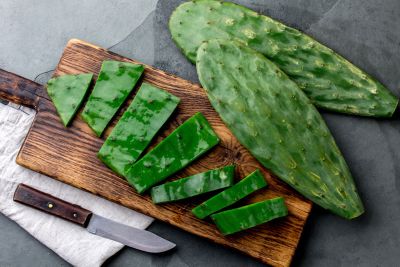If you live in the Southwest (or even other parts of the U.S.), you may have spotted something in the produce section called “nopales.” These are the pads of the prickly pear cactus and have been a food source to native people of the area. Looking around at all the flora in the genera, edible cactus plants make up just a fraction, but they do exist.
Are Cactus Plants Edible?
Amazingly, there are many types of edible cacti, although you may have to do some work to remove the spines. Wild gatherers may wonder, “is eating cactus dangerous?” As with any wild foraging, you must know what is safe and how to prepare your native foods. Apparently, all the fruits of a true cactus are safe to eat, however, many need special preparation or even need to be cooked. The flavors range from fruity, sweet, and bland into the range of bitter and intolerant. Native inhabitants of cactus ranges had to figure out which were edible plants and which were best left alone. Succulent plants like the agave have provided food from its leaves for thousands of years. Not only are they full of necessary moisture, but the leaves can be roasted for a variety of purposes. The indigenous people combined these types of plant-based food sources with hunting and cultivation to round out a balanced diet.
Is Eating Cactus Dangerous?
Most cacti species are not poisonous, but some do taste rather terrible. Harvesting any edible parts would have been strenuous and hardly worth the work for such unpleasant food sources. Several, though, are noted food stock and still used today. In arid, warm regions there are many types of edible cacti to add to your landscape. You may find options available in Latin groceries and even specialty supermarkets. Nopales, especially, are common both fresh and canned. Even the prickly pear “tunas” (or fruits) exist in many ethnic groceries.
What Cacti to Plant for a Foraging Garden?
Now that we’ve answered the question, “are cactus plants edible,” you need to know what the best varieties are for adding into your garden. Even northern gardeners can take heart, as many of these can withstand short periods of freezing. Some options for an edible cactus garden are:
Prickly pear – A prickly pear is a classic with both edible pads and fruit.
Barrel cactus – One having tasty fruits that resemble tiny pineapples is barrel cactus.
Agave – While technically a succulent, you can roast the tough leaves of agave or juice the plant for a delicious drink or sweetener.
Cholla cactus – The flowers of cholla cactus carry high amounts of calcium.
Peruvian apple – Use Peruvian apple fruit as you would any apple; the crunch is delicious.
Dragon Fruit cactus – Brightly colored dragon fruit cactus has juicy fruits with a flavor resembling a melon.
Organ Pipe cactus – Organ pipe cactus has large fruits edible both raw and cooked.
Most species in the Opuntia genus have edible fruits and Saguaro have members with edible parts too. Before wild harvesting, check locally to ensure your target foods are not protected plants. Disclaimer: The content of this article is for educational and gardening purposes only. Before using or ingesting ANY herb or plant for medicinal purposes or otherwise, please consult a physician, medical herbalist, or other suitable professional for advice.
